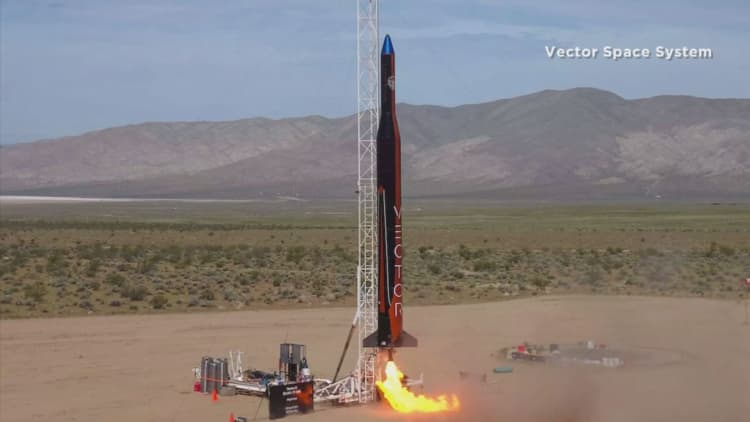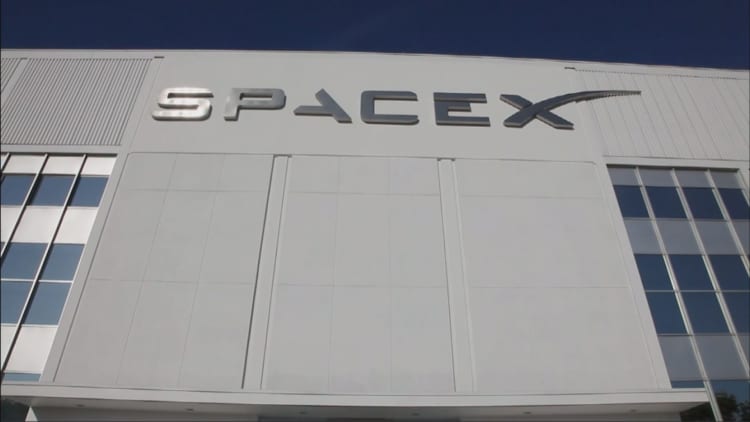
A company building tiny rockets is only a few launches away from cracking open a multi-billion dollar market.
Vector Space Systems on Thursday flight tested its Vector-R launch vehicle from Spaceport Camden in Georgia. The FAA-approved launch reached its targeted height of 10,000 feet while carrying a commercial payload which included packages from NASA, Astro Digital and the Center for Applied Technology.
The launch, partially funded by NASA, was a critical step in Vector's plan to become the top transporter of micro-satellites.
"The money in these vehicles is made in making a lot of them and flying a lot of them," CEO Jim Cantrell told CNBC.
Cantrell's company is building the Vector-R rockets to meet demand from companies that can't foot the bill to ride along with SpaceX or United Launch Alliance but still need to put satellites in orbit.
SpaceX's Falcon 9 vehicle is considered one of the most discounted in the industry, but its $62 million per launch price tag is still too expensive for a lot of small companies. The Vector-R aims to cost of less than $3 million per launch, one-twentieth the cost of SpaceX.
Cantrell was actually part of the SpaceX founding team, but left in 2002 because his dream differed from Elon Musk's, who wanted to build rockets large enough to bring cargo to the International Space Station and take humans to the Moon.
"We told Elon in the early days to start with a small vehicle and work your way up. Elon kind of had the argument that this was too small, that there's no market to it, which was right at the time," Cantrell said.
With the much lower cost per launch and $31 million in funding led by Sequoia -- one of the best-known venture capital firms in Silicon Valley -- Cantrell believes the Vector-R will quickly reach its goal of flying more than 100 times per year. Vector is in the final stages of negotiating its first customers.
"We're negotiating a flight manifest now and we have a number of contracts in place," Cantrell said. "We'll announce our first customer in about a month."
The microsatellite industry is currently worth $2.92 billion, according to research firm MarketsandMarkets, and is expected to grow more than 20 percent annually to be worth more than $7.5 billion in 2022. Potential competitors in the sector include Rocket Lab, who has a launch site in New Zealand, and Virgin Orbit, who will begin testing its LauncherOne vehicle later this year.
WATCH: SpaceX is now worth $21 billion



